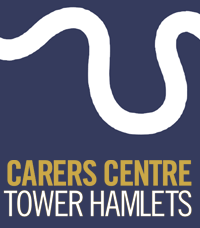While care and support services for carers are free in Tower Hamlets, some care and support services for an adult in need of care are chargeable. If the person you care for receives these services from adult social care, you may have to complete a financial assessment to see if they need to pay towards the cost of the care.
This depends on:
- the type of care and support they need,
- their income (through employment, pensions or benefits for example),
- their capital (savings or properties for example), and
- their expenditure/monthly outgoings.
When carrying out a financial assessment, Tower Hamlets will only look at the income, capital and expenses of the person receiving care.
If their savings and assets are less than £23,250, they will be eligible for means-tested support to pay for care. If they are more than this amount, they will have to pay for all chargeable care.
Tower Hamlets approach to charging is explained in detail in their charging policy for adult social care. Or you can learn more about paying for care from these frequently asked questions on the TH Connect site.
Disability related expenditure.
As part of the financial assessment the council is required to consider Disability Related Expenditure (DRE). Disability Related Expenditure is the extra costs that arise as a result of disability. For example, if the person you care for needs several changes of clothing each day, there are additional costs for laundry, wear and tear on the washing machine and tumble dryer, electricity costs etc. The council must take all of these costs into account when deciding how much you toward care costs. In practical terms this means that these costs will be deducted from the total amount the person you care for is required to pay.
The Tower Hamlets Financial Assessment team can support you to complete a financial assessment. REAL DPO have also produced a useful guide here.
Personal Budget
A personal budget is the amount of money the council has allocated towards a persons care and support needs. If you or the person you care for have been assessed as eligible for social care, you will be allocated a personal budget based on your care plan (or care and support plan for carers). It can give you more choice and control over your support.
If you think you or the person you care for needs extra care and support, ask your local council for a needs assessment. This will look at your care needs to see if you qualify for support. If you do, you’ll have a financial assessment to see if you should pay towards any of your care. If the council will There are different ways to receive your personal budget. Your local council can:
- manage your personal budget for you, and spend it as agreed in your care plan (or care and support plan for carers)
- pay the money in your personal budget directly to you as direct payments so you can arrange and buy your own care services
- pay the money to another organisation, such as a care provider. They will manage and spend it as agreed in your care plan. This is known as an Individual Service Fund (ISF).
Direct Payments
A direct payment is an amount of money from the council to allow a person with eligible care and support needs to purchase their own care.
Receiving a direct payment means you:
- are able to arrange your own services or support
- have more freedom, choice and control to decide how your needs are met
- can be creative in your thinking on how your budget is used.
What can a direct payment be spent on?
Examples of things you can buy with direct payment include:
- care and support to help you live in your own home
- employing a personal assistant to help you do different activities
- transport costs to meet eligible needs
- support in college or in a job
- travel training
- short breaks and leisure activities.
How is a direct payment paid?
Prepaid card
The council will pay the direct payment into a prepaid card account. The card, which works like a debit card, enables you to draw on the money paid into the account.
Managed account
The council will pay the direct payment into a managed account which is managed by an external payroll company.
They will calculate and make payments for all costs including:
- personal assistant salaries
- HMRC payments
- insurance payments
That are linked to the agreed support plan prepaid card account. You will not normally be required to provide monitoring returns and produce any receipts to the council.
Arranging care
You can:
- receive your care and support through a care agency – home care agencies, employ care workers – and arrange for them to provide care services
- search for local agencies
- speak with your social worker about language, culture and gender preferences and our brokerage team will produce their top three recommendations
- choose to employ your own personal assistant. This can be someone you already know, or Tower Hamlets support service can help you to find suitable candidates.
Tower Hamlets Direct Payment Support Service
Tower Hamlets Council provide support and guidance for people in Tower Hamlets who receive direct payments.
You can contact the support service on 020 7364 4166 or dp.support@towerhamlets.gov.uk any weekday between 9am and 5pm.
